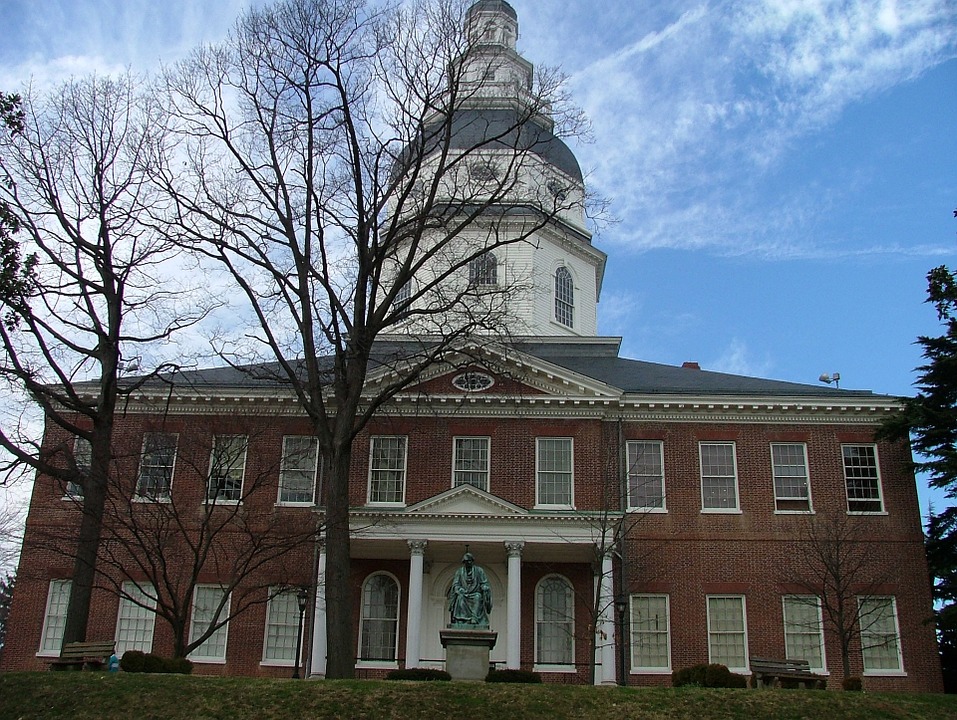Views expressed in opinion columns are the author’s own.
Expanding the franchise must be a defining priority for the American left, and on Wednesday, Maryland’s legislature took a giant step in the direction of greater democracy, approving a measure to make voter registration automatic.
Under this legislation, any Maryland resident getting a driver’s license, or interacting with several other agencies, would be automatically signed up to vote and given the opportunity to opt-out.
It’s currently unclear whether Gov. Larry Hogan will reject the measure, but both chambers of the legislature passed the bill with veto-proof majorities. So, come July 1, 2019, Maryland will likely join the 10 other states and Washington, D.C., that have already approved similar legislation.
[Read more: Maryland could make presidential candidates submit tax returns to be on state ballot]
Two facts about American politics are critical to understanding the importance of Maryland’s achievement. One: The United States has far lower voting rates than most other wealthy democracies. Two: The United States has more conservative public policy than many other wealthy democracies. These facts aren’t unrelated.
As Sean McElwee has shown for Demos — a progressive think tank — demographic groups underrepresented in the American electorate tend to have more progressive views than overrepresented groups. Our elections do a terrible job of expressing the full viewpoint diversity in the American citizenry, pushing American public policy to the right.
This isn’t an accident, of course: Conservatives have spent decades erecting race and class barriers to the franchise through voter ID laws, attacks on the Voting Rights Act and gerrymandering.
Fighting with even greater vigilance for increased electoral participation is an imperative for the left. And the academic literature suggests that expanding voting rights correlates with the success of progressive goals. As researchers Daron Acemoglu and James Robinson found studying four European democracies, “there is a close correspondence between the decline in inequality and the extension of the franchise.”
Automatic voter registration will encourage fuller representation of Maryland’s citizens. A similar measure in Oregon registered almost250,000 new voters in its first year, and California estimated its automatic registration law would add 6.6 million to the voting rolls.
But our work isn’t done. Maryland should expand the franchise more radically: to felons serving prison sentences and to 16 and 17-year-olds.
In 2016, the General Assembly granted voting rights for felons on probation or parole, an admirable but inadequate solution for the folks most excluded from Maryland society. Prisoners should also be given the vote, like they are in Maine and Vermont. The U.S. Supreme Court declared in the 1958 case Trop v. Dulles, “Citizenship is not a right that expires upon misbehavior.”
Neither should voting rights. Giving prisoners voting rights maintains their connection to the world outside prison walls and forces politicians to cater to a constituency with specific policy needs. Prisoners’ political engagement could limit mass incarceration, improve prison conditions and establish better protections for prison laborers.
Lowering the voting age two years for state elections would also be a progressive victory. The Parkland movement has proved that the teenagers who organized one of the biggest demonstrations in decades, and have better political instincts than most professionals, shouldn’t be blocked from the ballot box. Sixteen and 17-year-olds are also more firmly embedded in their communities than young adults, many of whom leave home to attend college or find work.
[Read more: College Park must allow UMD students absentee ballots]
The voting age is 16 in Argentina, Austria, Brazil, Cuba, Ecuador and Nicaragua, as well as in several local jurisdictions, such as Hyattsville, Greenbelt and Takoma Park. And while Maryland cannot lower the federal voting age, it can allow young people to participate in contests for governor, attorney general and the General Assembly.
If the left is about anything, it’s about giving people greater control over their life circumstances — in their workplaces and in their governments. The fulfillment of that goal requires expanding the franchise. Maryland made progress in that direction last week. Let’s keep moving.
Max Foley-Keene, opinion editor, is a sophomore government and politics major. He can be reached at opinionumdbk@gmail.com.



